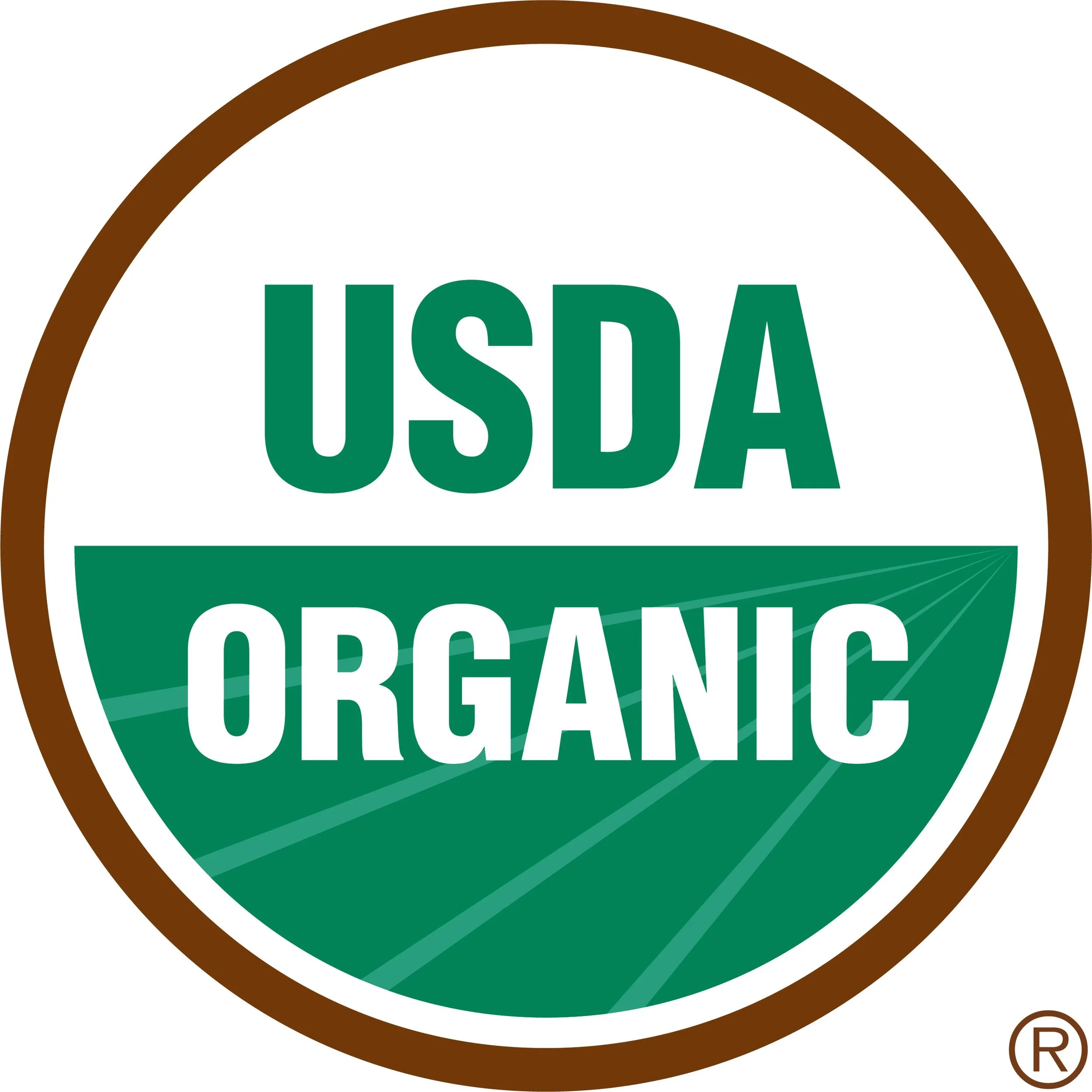Our pediatric registered dietitian sheds light on a common question.
We’ve all been there…standing in front of the selection of produce at the grocery store. The organic strawberries cost almost twice as much as the conventional ones. The store has conventional cucumbers but not organic ones. There is organic asparagus at a decent price, but it doesn’t look anywhere near as fresh as the non-organic asparagus. You might ask yourself, “Is it worth it to buy the organic strawberries at such a higher price?” “Should I buy the cucumbers even though they aren’t organic?” “Is it better to buy the produce that looks fresher or the produce that is organic and a little wilty?”
The short answer: Yes, it’s always worth it to buy organic if you can, but perfection is not required.
What Does The USDA Organic Label Mean?
Foods are certified organic by the USDA if they contain this label.
These foods are grown and processed to follow the federal guidelines, meaning:
-
No genetically modified (GMO) ingredients
-
No prohibited synthetic fertilizers, pesticides, or herbicides including glyphosate (Roundup)
-
Ingredients are not processed with hexane (hexane is a neurotoxin used in processing of conventional oils and soy ingredients)
-
Organic meat comes from animals “that are raised in living conditions accommodating their natural behaviors (like the ability to graze on pasture), fed 100% organic feed and forage, and not administered antibiotics or hormones” (1)
-
Processed, multi-ingredient foods are prohibited from containing artificial preservatives, colors, or flavors and require ingredients to be organic (1)
Organic Guidelines for Growing Food Has Benefits
Higher nutrient density of food due higher content of vitamins, minerals and antioxidants.
Better for your health because lower consumption of pesticides and animals free of antibiotics and hormones.
Improved taste because the produce is usually given more time to mature and picked when ripe.
Better for the environment due to less pesticide pollution and biodiversity.
Better for the local economy when you support local farmers.
Importance of Reducing Exposure to Pesticides
It’s not just produce that is sprayed with pesticides. Non organic grains, beans, legumes and soy are heavily sprayed with glyphosate, the active ingredient in the herbicide Roundup. Use of Roundup has increased 100-fold since the 1970’s. Studies are now showing that exposure to glyphosate is linked to cancer. (2)
In addition to the increased risk for cancer, studies show many other health risks associated with exposure to glyphosate such as hormone disruption, birth defects, nervous system toxicity and antibiotic resistance. Children, infants, and babies in utero are the most vulnerable to these health risks due to their developing organ systems and the different way they metabolize toxins. (3)
Research on Roundup and Glyphosate
A study published in 2018 found that in a cohort of 71 pregnant women living in Indiana, 93% of the women had detectable levels of glyphosate in their urine and higher levels of glyphosate were “significantly correlated with shortened gestational lengths”. (4)
Another study published in 2022 found glyphosate in 99% of pregnant women (186 of 187 women). Higher levels of glyphosate were associated with lower birth weights and a higher risk of NICU admission. (5)
And finally, a study published in 2020 measured urine levels of glyphosate and its main breakdown product (AMPA) in 7 adults and 9 children, for 6 days on a conventional, non-organic diet, and for 6 days on an all-organic diet. The researchers found significantly reduced levels of glyphosate and AMPA in the all-organic diet, and the levels dropped quickly, within 3 days on the organic diet. (6)
This sampling of studies shows that over 90% of pregnant women had detectable levels of glyphosate in their urine, and higher levels were associated with shorter pregnancies, lower birth weights, and higher NICU admission risk. The last study demonstrates “that diet is a primary source of glyphosate exposure and that shifting to an organic diet is an effective way to reduce body burden of glyphosate…”(6)
Buying Organic on a Budget
Buying organic is expensive, that’s definitely true. Sometimes it can be hard to find organic options at grocery stores, as well. Here are some great tips for how to shop organically without breaking the bank:
1. Buy produce, meat, eggs, dairy (whatever you can!) directly from a local farmer who uses organic growing practices. They may not have the USDA “certified organic” label because it is an expensive process for farmers to obtain this, but that does not mean they are not growing their produce organically. Just ask them! Oftentimes they are able to sell their produce cheaper because they are not paying for that label. The same usually goes for meat, eggs, and dairy.
2. Prioritize buying organic produce that is on the “Dirty Dozen” list. The items on this list are found to be the most heavily contaminated with pesticides. You’ll notice that these items have very thin skins or none at all, like leafy greens. The Environmental Working Group (EWG) provides a yearly updated list with the most contaminated produce and the cleanest produce. Foods like pineapple, mango, and honeydew melon are on the Clean Fifteen list – notice these items have thicker skins.
3. Take some time to analyze where your food dollars are going and if you can reallocate more towards buying organic. Can you cut back on eating out? Maybe buying less processed foods will allow you to spend more on organic produce. Most processed foods don’t give you much bang for your buck nutritionally speaking. Your dollars will ultimately go towards what you value the most.
4. Evaluate where you are doing the bulk of your shopping. Some stores have great deals and a wide selection of organic produce compared to others. You can likely save money on buying organic dry goods in bulk also. Places like Costco, Sam’s Club, and BJ’s are starting to put more organic foods on the shelves.
It’s Okay if Not Everything is Organic
Please remember though – perfection is not required and this is not an all or nothing deal! Studies show that the effects of pesticide exposure are cumulative, so every time you are able to opt for organic over conventional, that’s one less exposure, and it adds up! (7) Maybe you want to completely overhaul your grocery shopping to organic overnight – if that’s doable for you, go for it! Or maybe it’s more attainable for you to start with buying organic produce on the dirty dozen list, and then gradually move towards buying organic dairy, eggs and meat and finding a local farmer to source some of these items as well.
Give yourself some grace and remember- it is always a nutritious choice to feed your family fresh fruits and vegetables, even if they are not organic.
Focus on real foods and balance, always.
Wherever you are on your feeding journey, we can help!






